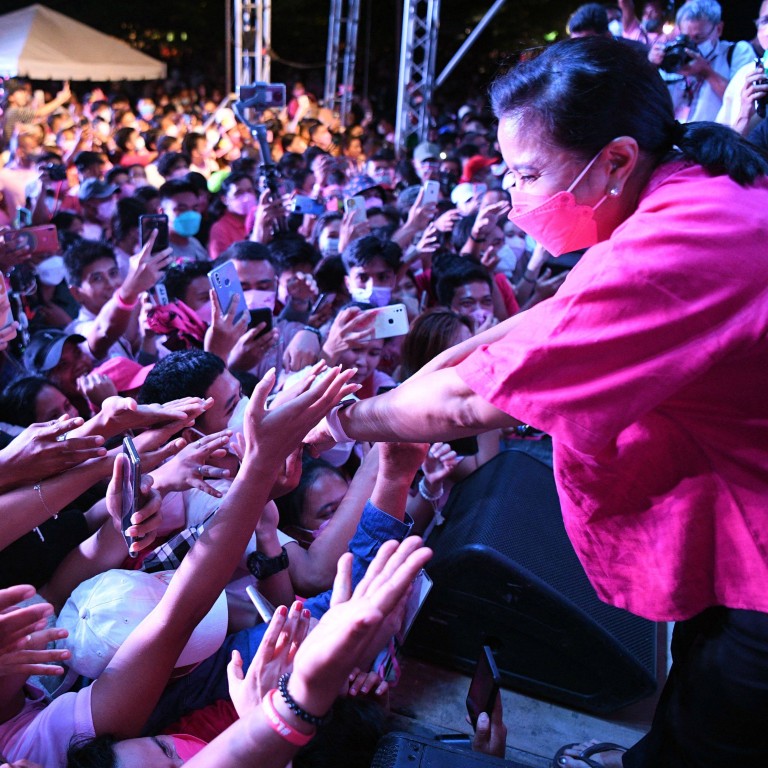
Philippine election: Can Leni Robredo’s ‘pink wave’ reverse the Bongbong Marcos tide?
- Weeks out from the May 9 poll, VP Leni Robredo’s supporters are going all out to canvass for votes, including running soup kitchens, knocking on doors and holding street rallies
- The strength of the ‘pink wave’ has unsettled some backers of frontrunner Ferdinand ‘Bongbong’ Marcos Jnr, who have belittled the movement online
As the Philippine presidential election nears, a people’s campaign for Leni Robredo has reached a fever pitch, with a “pink wave” of supporters working day and night to close the gap between her and front runner Ferdinand Marcos Jnr on May 9.
Property agent Nena Divino, 82, says her days are crammed full with organising voter education forums, supporting a community pantry to feed the hungry, and fielding volunteers for rallies and house-to-house campaigns in Manila’s suburban Quezon City.
It is not her first time supporting a Marcos rival. The grandmother of nine in 1986 campaigned for Corazon Aquino when she ran against the dictator Ferdinand Marcos – Marcos Jnr’s father. “Because of our present government, we are looking for a new kind of leadership,” she told This Week in Asia.
Who’s who in Philippine election, and what are their China policies?
In the working-class neighbourhood of Obrero in Quezon City, John Toledo, 29, is part of a growing army of volunteers campaigning door to door and on the streets. Every night, the literature teacher at the state-funded Polytechnic University of the Philippines pushes a cart offering free hot lugaw, or porridge – a dish that has long been associated with Robredo because of her community work.
Toledo says he decided to back Robredo, the country’s current vice-president, after examining her track record, particularly during the Covid-19 pandemic when she provided personal protective equipment to frontline medical staff and organised vaccinations for the poor.
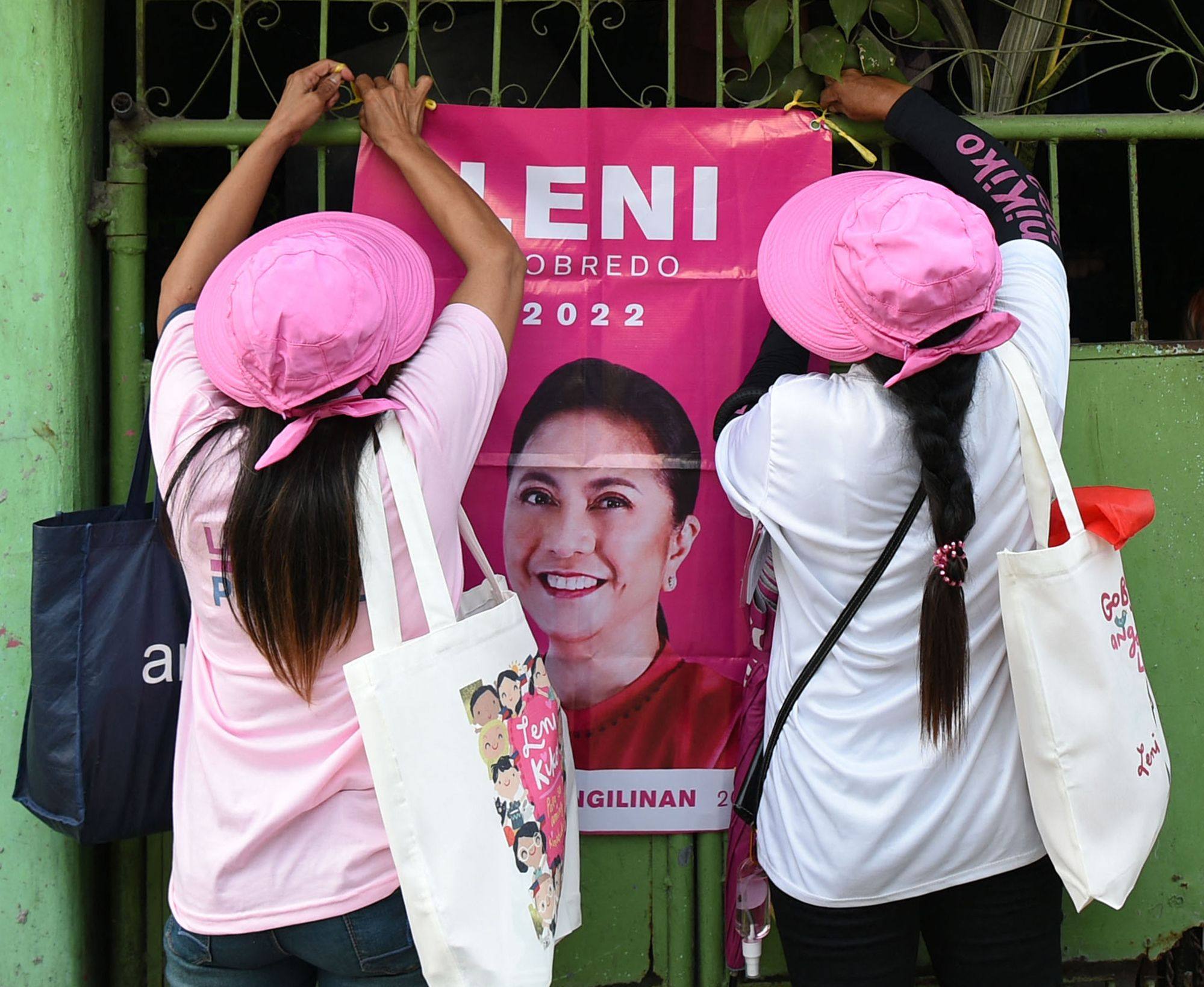
Robredo, a human rights lawyer, has cited the rise of disinformation and the threat of a return to the graft and human rights abuse-ridden politics of the Marcos era as among the reasons she is seeking the top job.
“I do believe she is the symbol of hope for our country … I know if she becomes the leader we will be on the right path, that’s why I’m sacrificing my time, energy to help her win. It has become a panata (vow) for me,” Toledo says.
Tricycle driver Ronald Carigo meanwhile has mounted a solo campaign effort by riding buses plying Metro Manila, home to some 7 million of the Philippines’ 65 million registered voters and where Robredo lost heavily to Marcos in 2016. .
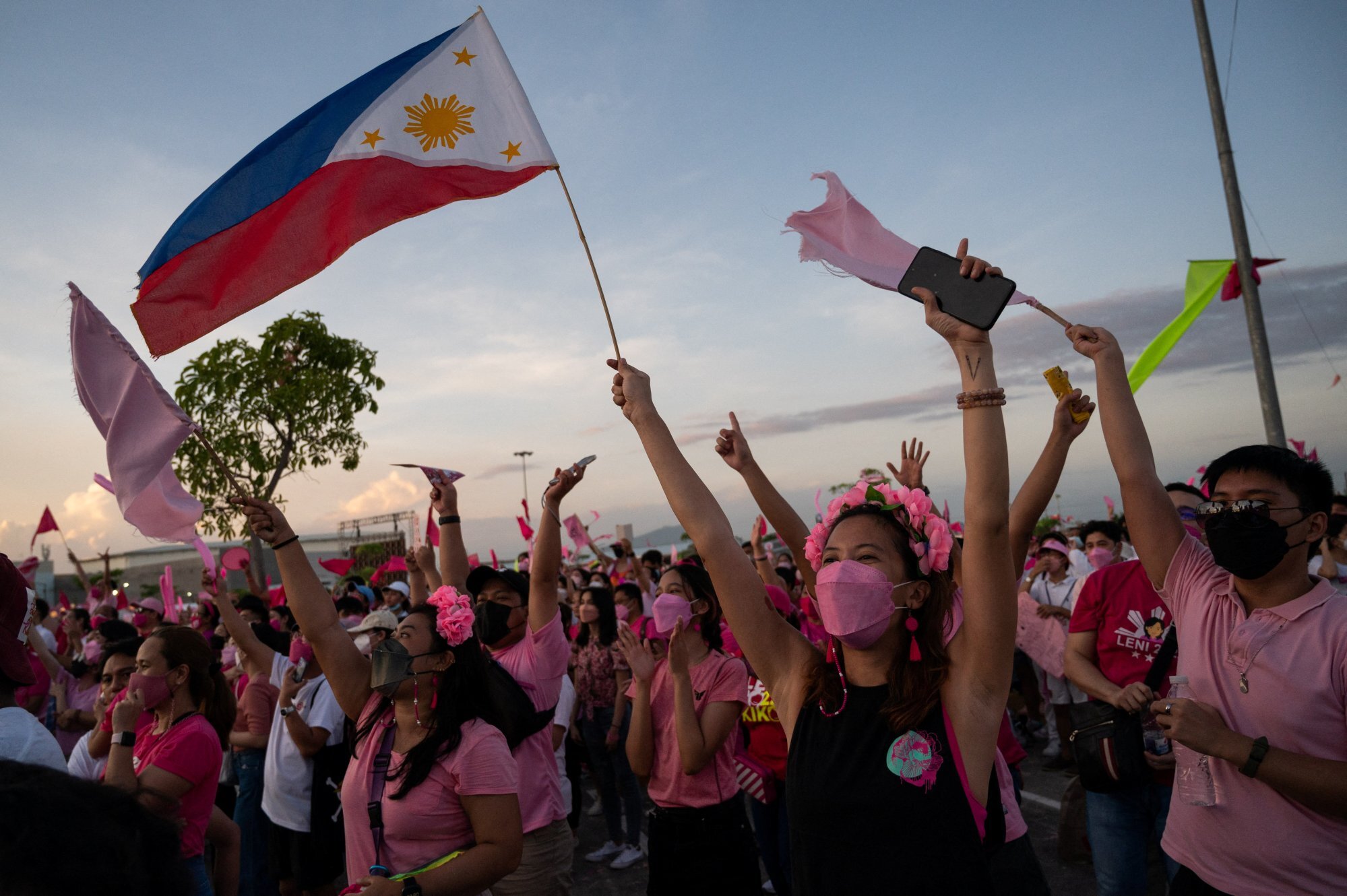
Pink power
As volunteer-driven campaigns go, the “pink wave” is among the most self-motivated, with the supporters’ level of intensity, organisation and passion described by one veteran campaign strategist as a force to reckon with. Even the colour pink was chosen by backers themselves.
PR expert Alan German, whose father steered the campaign of Joseph Estrada to win the 1998 presidency, said: “In my opinion, VP Leni and her teammates are no longer running a campaign, they are igniting a crusade.
“It has already become a movement. That’s why they use words like ‘pink wave’,” German told a ONENews online talk show. He noted the strength of the messaging, which says Marcos “will be swept out” by the wave.
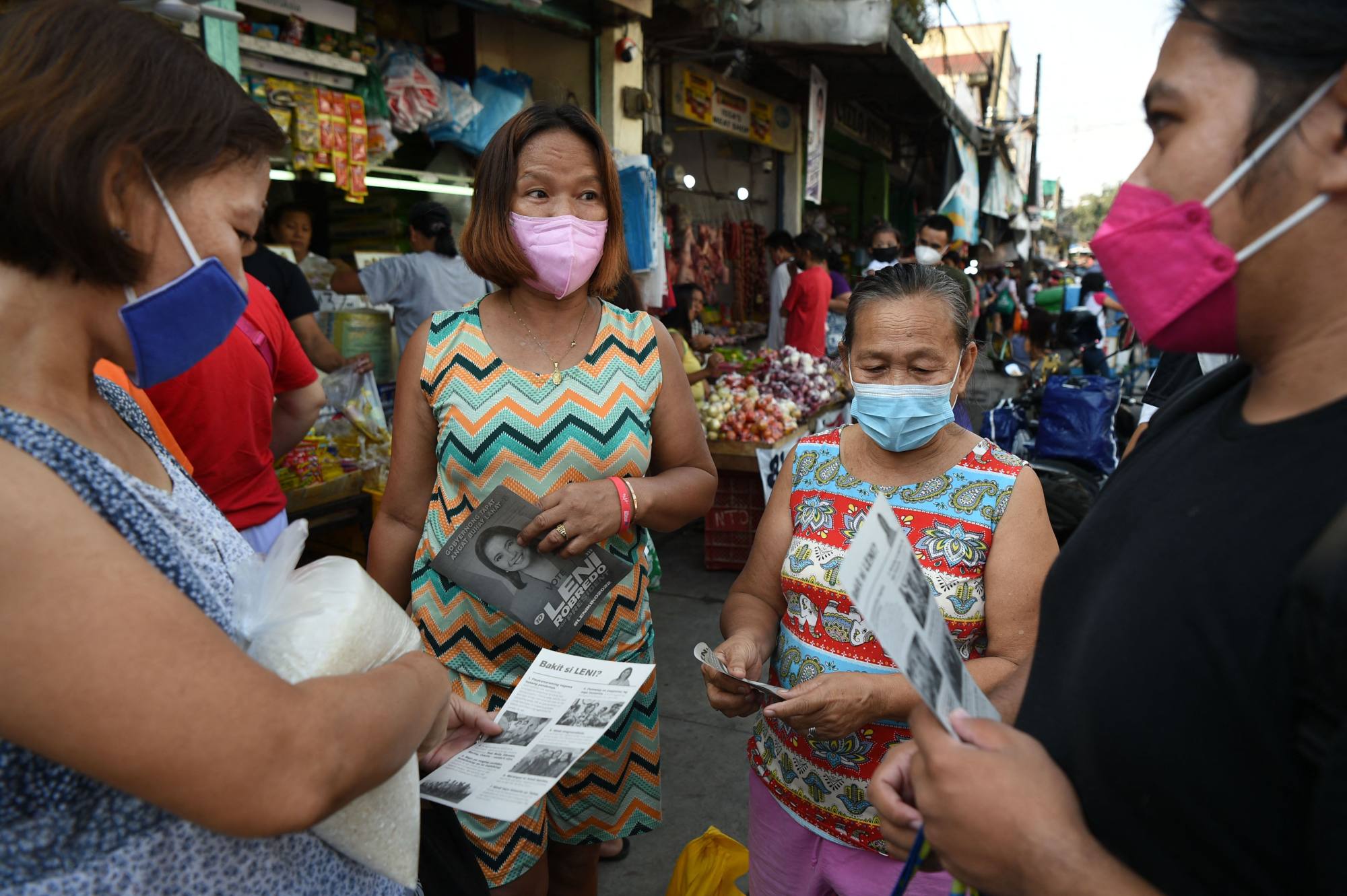
The public policy think tank, Centre for People Empowerment in Governance (CenPEG), observed the political phenomenon in an analysis released in March.
“The 2022 election has introduced or more accurately, brought to a new level, a form of mass campaigning that relies more on volunteers on the ground to educate, generate support, and organise huge rallies for a candidate,” it said.
“This has been most evident in the Robredo campaign, and with Mayor Moreno to a lesser extent. While this can be certainly combined with more traditional forms of campaigning and organising, it also creates more space and initiative for individuals to play active roles in the electoral process.”
In the campaign, the costs for venues, food, lights and even drone photography are picked up by the volunteers, or provided for free.
Young people have especially been inspired by the call for reforms and clean governance.
Gabe Pineda, a 24-year-old singer, said in a TikTok video that he had “stood” for 10 hours at a recent rally for Robredo in Pampanga, which had attracted a turnout of some 200,000 people, up from 10,000 in previous events.
The growth in crowd sizes came even as former President Gloria Macapagal-Arroyo has promised to help Marcos Jnr win over her home province.
“This might just be the biggest fight of our lives … people are craving for efficient, clean and trustworthy leadership,” Pineda said.
Could the colour pink swing the Philippine presidential election?
The strength of the “pink wave” has unsettled some Marcos supporters, who have belittled the movement online. The jibes prompted Marcos Jnr’s spokesman Vic Rodriquez to issue a statement to “entreat” supporters to “refrain from complacency”.
But the volunteers have taken the insults in their stride. When trolls on social media wrote that the pink rallies looked like onions from a distance, some Robredo supporters responded by wearing giant hats shaped like onions.
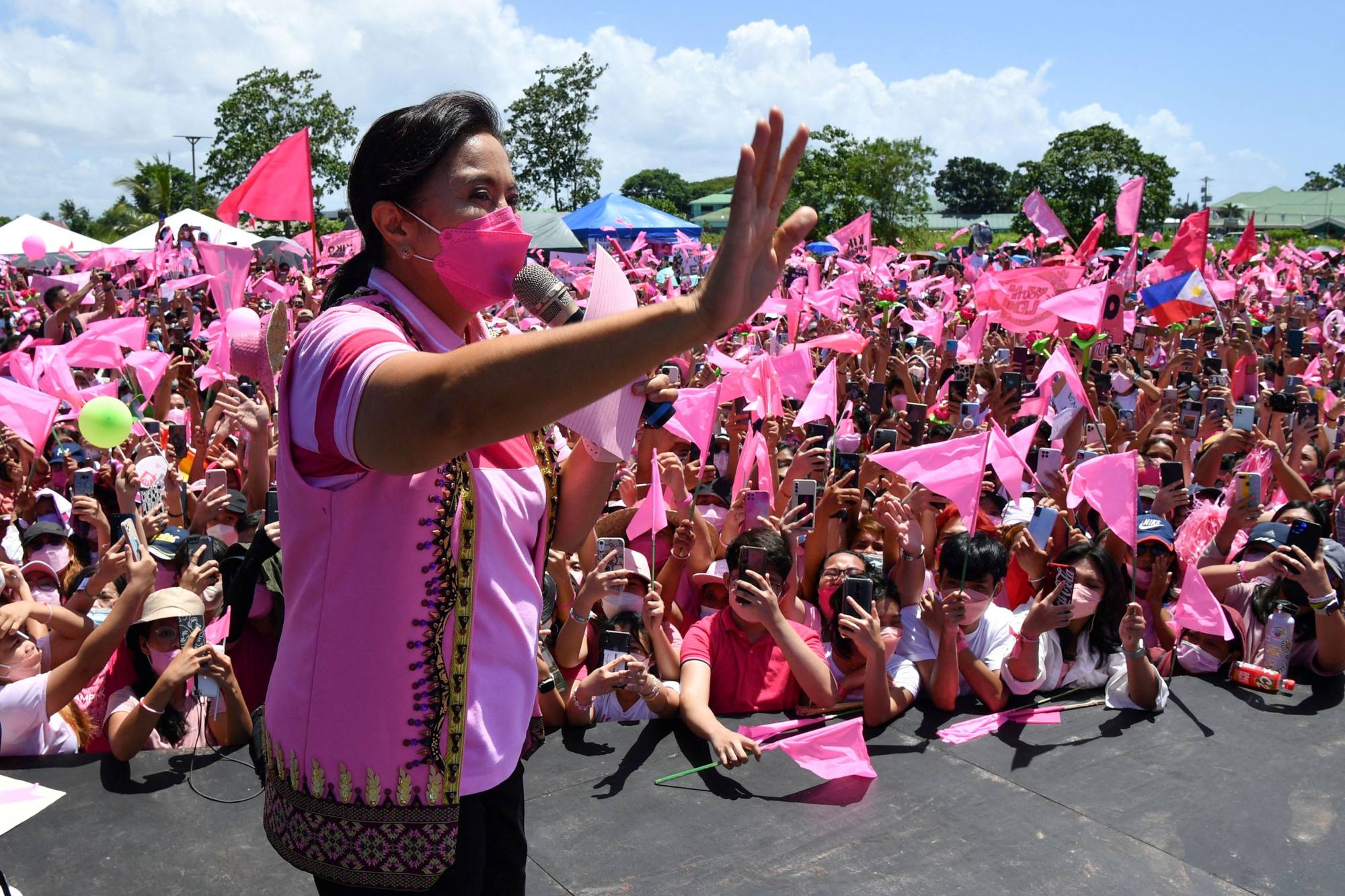
While Marcos Jnr continues to have a clear lead in opinion polls, Robredo improved slightly in the latest March survey, where she rose from 15 to 24 per cent, and Marcos fell from 60 per cent to 56 per cent.
Robredo’s spokesman Barry Gutierrez expressed confidence that the numbers were “starting to reflect what we have been seeing on the ground all along: the massive crowds, the fierce passion, the untiring commitment of Filipinos from all walks of life, coming together to rally behind Leni Robredo’s bid for the presidency”.
“With the help of our countrymen who are continuing to do the work, knocking on the doors, talking to voters, we will win this,” he said.


